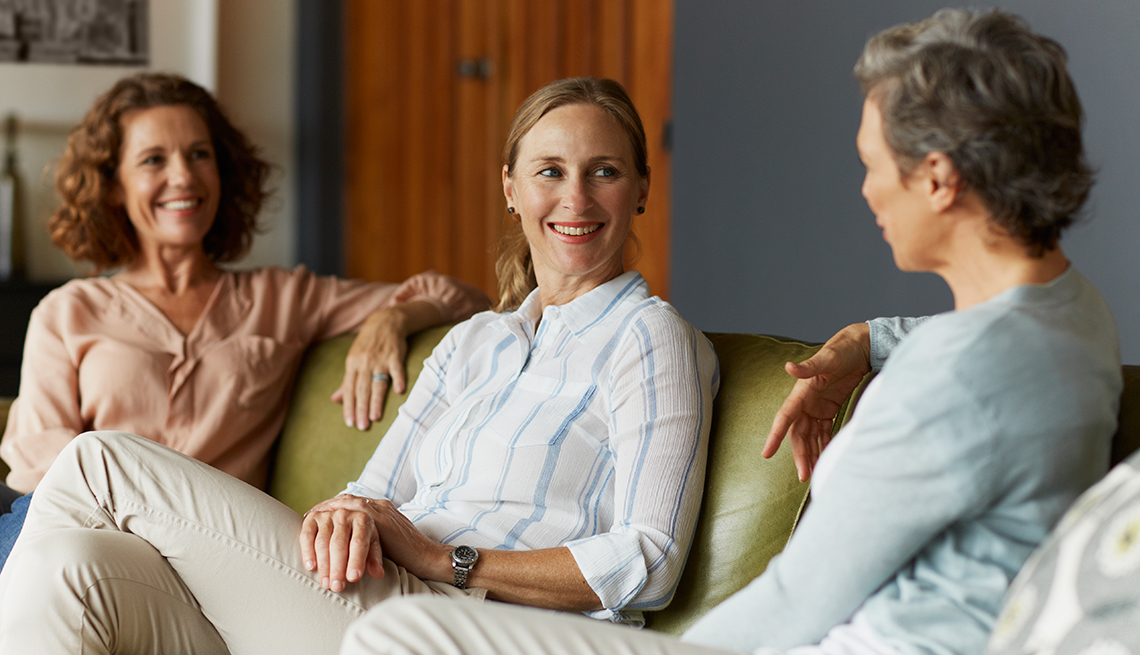
Peer-led support groups. The Well Spouse Association, a national support organization for people caring for spouses, facilitates a network of support groups around the country, all run by volunteers. “We’ve been in their shoes, and we can share,” says Dorothy Saunders, the association’s former copresident and a caregiver for more than 40 years. “Someone may be thinking, I’m really losing my patience. I’m always at his beck and call. That’s normal.”
Groups led by a trained facilitator. A social worker, psychologist or member of the clergy can help keep the discussion on track and stop one person from monopolizing the conversation. Facilitators can also steer participants toward useful educational programs with elder law or legal aid attorneys, adult day care providers and other professionals.
Online and telephone caregiver groups. These groups can offer priceless support to people who can’t travel to a face-to-face meeting (or who prefer not to during the pandemic) or need to talk to someone during off-hours. Though you give up opportunities for local networking and face-to-face contact, research has found that online groups provide the same positive effects as in-person groups when it comes to emotional support and validation.
Support groups for young caregivers. Children are an often-overlooked subset of the family caregiver population. There are more than you may suspect: The 2020 “Caregiving in the U.S.” report from AARP and the National Alliance for Caregiving estimates that more than 3.3 million people under age 18 in the country are providing care to an adult recipient.
Caregiver education groups. Some caregivers may worry that the very idea of accepting “support” means others will judge them to be struggling. A more appealing option might be “caregiver education groups,” at which invited speakers address relevant topics, such as stress management or dealing with Medicare. There are typically discussions among attendees after the presentation, through which caregivers still gain support.
Tips for finding a group that fits
Get out of your comfort zone. Caregiver support groups are underutilized, often because people think they don’t have the time or feel self-conscious about speaking about personal subjects with strangers. As Jacobs puts it, “There are a lot of introverts in this world.” Try to push yourself through your resistance and take the plunge.
Search online. Enter your zip code or city at the federal government’s Eldercare Locator to find the nearest Area Agency on Aging and other state and local services for seniors and caregivers. Disease organizations such as the Alzheimer’s Association and CancerCare often offer tools to find in-person and online support.
Find out what the format is. Does the group have a facilitator? Some have a trained leader; others don’t. You may prefer one approach over the other. And ask about the group’s confidentiality policy. You’ll want one that follows Las Vegas-style rules: What’s said in the group stays in the group.
Know that most groups are free to join. “I would be wary if a fee is being charged,” says John Schall, chief executive officer of Caregiver Action Network, a national organization working to improve the lives of the nation’s 53 million unpaid family caregivers. Some, though, may ask you to join their organization and pay dues. That’s the case with the nonprofit Well Spouse Association, which charges membership dues of $30 a year but offers reduced fees to caregivers with financial hardships.
Keep an open mind. Don’t dismiss a support group just because it’s not perfectly targeted to you, especially if you don’t have many options in your area. (And don’t assume you need to belong to a congregation or have sought care at a medical center to join a caregiver group there. Call first if you’re concerned, but most likely they’ll welcome you.) Most caregivers face similar challenges — emotional stress, financial pressure and navigating the health care system, to name a few. A well-run, general caregiver group may meet your needs just fine.
The important thing is to find a space where you can share stories, feelings and advice with people who can relate and won’t judge. Knowing that you are not alone can make a world of difference.
